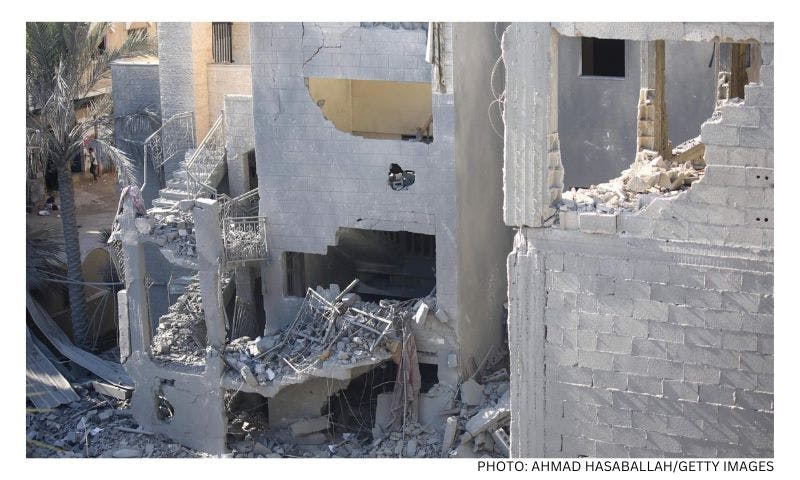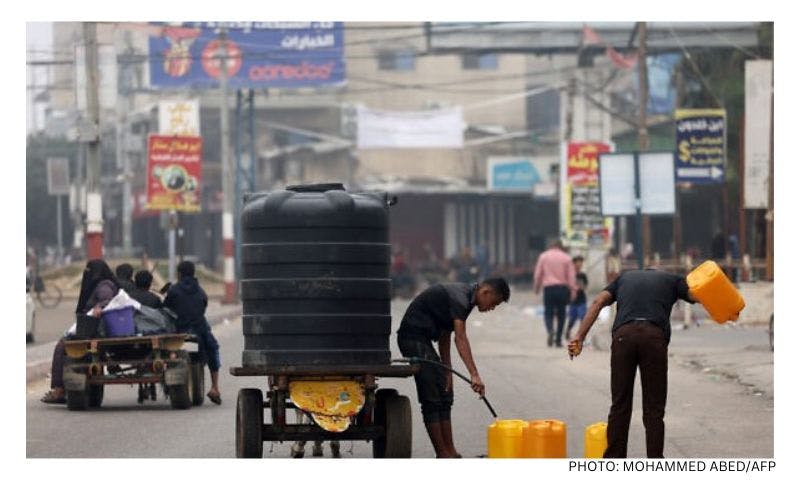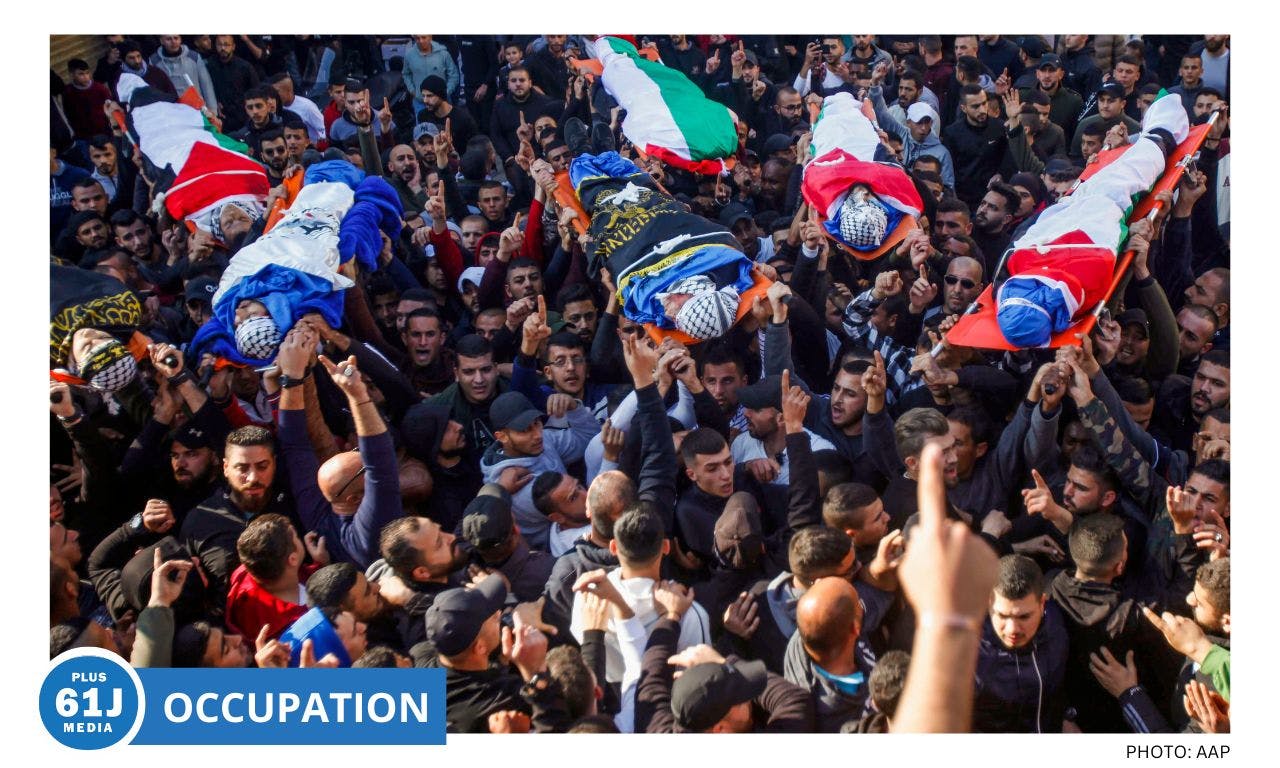Published: 31 December 2021
Last updated: 4 March 2024
MICHAEL VISONTAY: The Gaza conflict sparked a year of fierce debate; boycott calls are effective at highlighting the cause, but a boycott of the Sydney Festival defies justification
THE CALL FOR a boycott of the upcoming Sydney Festival over the Israeli embassy’s sponsorship of a dance event in the festival is the exclamation mark on a year of intense debate over Israel and “the Occupation”.
A coalition representing Sydney’s Arab community, Jews Against the Occupation and others have called on patrons and performers to boycott the festival in response to its partnership with the embassy, which is sponsoring the performance of Decadance, by Israeli choreographer Ohad Naharin, who is himself an outspoken critic of the occupation. Several prominent Australian artists have withdrawn from festival in solidarity with the boycott call.
The contradictory arguments wrapped up in this story underscore the new level of hostilities that have been played out since the Gaza conflict in May. As critics condemned Israel over the death and destruction inflicted on Gaza, pro-Israel advocates fumed at the critics’ apparent dismissal of Hamas’ rocket barrage and loss of Israeli life.
In Australia this tension was further aggravated by a discussion on the ABC’s Q&A program which Jewish community leaders alleged was blatantly one-sided in favour of pro-Palestinian voices, sparking a sustained campaign against alleged ABC bias by community leaders.
While they argue Jews have been victimised through anti-Israel bias, there are many more, Jews as well as non-Jews, who believe Palestinians are the victims of a greater Israeli oppression – a dichotomy that seems to have become the de facto signature of the debate.
Fallout from the Gaza conflict spilled over into fierce disagreements about the IHRA definition of antisemitism, as Jewish academics and advocates exchanged arguments about whether the definition had gaps that would allow right-wing institutions to tar criticism of Israel as antisemitism, and effectively shut it down. An international group of Jewish academics proposed an alternate definition, The Jerusalem Declaration, which sought to address these potential loopholes.
The IHRA definition also galvanised the pro-Palestinian side of the political fence in Australia. The Arab-Australian Federation published The Sydney Statement on Anti-Palestinianism, which contained a list of declarations titled "Combatting anti-Palestinianism" that appear to have been formulated in response to the IHRA definition. The statement, released in September, includes a detailed critique and attack on Israeli government policy but does not specifically call for any political action.
Shortly afterwards, the Australian government adopted the IHRA definition, which has in turn been adopted by several Sydney councils (Randwick and Waverley) and more recently the NSW government. Whether as a result of these decisions or by coincidence, that decision has also ushered in a fresh round of pro-Palestinian campaigning in Australia for bans and boycotts.
Individually, they have each focussed on a different grievance relating to Israeli government and cultural activity. As a sequence of attacks, however, their accumulated impact has made it hard for Jews, regardless of their political sympathies, to view each campaign on its individual merits.
Nevertheless, it is important to do so.

In November activists called for an Israeli film, The Swimmer, to be dropped from the Melbourne LGBTQ film festival on the spurious grounds that it did not also include a Palestinian feature film, and that the inclusion of The Swimmer constituted “pinkwashing” (diverting attention from the Israeli-Palestinian conflict). The festival rejected the call to drop the film, which sparked several resignations by board members.
It was followed earlier this month by a campaign initiated by Australian artist Matt Chun against Schwartz Media, which publishes The Monthly, The Saturday Paper, Black Inc books and a raft of other publications.
The campaign appears to have been inspired by a book published in October by ABC journalist John Lyons, Dateline Jerusalem: Journalism’s Toughest Assignment (Monash). In his book Lyons claimed Australian pro-Israel advocates had bullied Australian media into self-censoring over stories that were critical of Israel.
Within the book, Lyons claimed Schwartz Media, which is owned by Melbourne Jewish businessman Morry Schwartz, has deliberately ignored the Israeli-Palestinian conflict in its publications. Matt Chun, citing Lyon’s book, created a publication titled The Sunday Paper, which has a list of pro-Palestinian content as a corrective to The Saturday Paper’s alleged omissions.
Matt Chun called for a boycott of all Schwartz Media publications, and went further, calling for a boycott of the art gallery owned by Schwartz’s wife. His actions are disgraceful.

Chun called for a boycott of all Schwartz Media publications, and went further, calling for a boycott of the respected Melbourne art gallery owned by Schwartz’s wife, Anna Schwartz.
Chun did not mention any other media group for not having given sufficient coverage to the conflict, or ventilating the Palestinian side. Just Schwartz Media. Not only is Chun singling out a Jewish-owned media group for the sin of giving no coverage to either side, but he says the owner’s wife should be punished too. His actions are disgraceful.
A more nuanced dispute took place, also earlier this month, when the Australian Palestine Advocacy Network (APAN) asked the Australian Council for International Development (ACFID) to reject the application for membership by Australian-founded NGO Project Rozana.
Project Rozana, a non-sectarian NGO with a board of nine directors reflecting the diversity of Australian society, provides training for Palestinian health professionals and health care to Palestinian patients at Israeli medical facilities. Since its foundation in 2013 it has aimed “to build bridges to better understanding between Israelis and Palestinians through health”.
In a submission to ACFID, Nasser Mashni, the vice-president of APAN, claimed Project Rozana’s mission “is neo-colonial at best, a cynical use of Palestinians for the Israeli cause at worst. This is an organisation that is systematically propagating views that entrench disadvantage and oppression."

In response, the chairman and founder of Project Rozana, Ron Finkel, and the deputy chair, Dr Jamal Rifi, wrote that the organisation has had the full support of the Palestinian Authority and generated “buy-in” from both sides in the region.
Project Rozana has distinguished itself over the years with initiatives including the Binational School of Psychotherapy (BSPT), which trains Palestinian and Israeli child psychologists in the latest approaches to the treatment of children with PTSD, the provision of much-needed ventilators for the PA during the early phase of Covid, and the funding of a Palestinian-Israeli medical fellowship in honour of Palestinian student Aiia Massarwe, who was murdered in Melbourne.
ACFID rejected the submission by APAN and granted Project Rozana full membership.
Which brings us back to the Sydney Festival boycott call, the most significant of all mentioned in this article because of its profile and the figures involved: a major public cultural institution, an arm of the Israeli government and a prominent choreographer who is an outspoken critic of the occupation.
It seems fitting to address the issue by asking The Four Questions.
Is the Israeli government’s occupation of the Palestinian territories unjust? Yes
Is it legitimate to speak out against the government’s occupation? Yes
Does that mean every boycott call against the Israeli government, institution or cultural work is justified? No
What is the effect of indirectly punishing the work of an Israeli artist who is an outspoken critic of the occupation? You penalise someone who is aligned with your own cause, someone who has already shown the courage to speak out against the injustice, in their own country.
In football that is called an own goal.
READ MORE
LIAM GETREU: Sydney Festival boycott a blunt instrument that blocks voices of dissent (SMH)
JENNINE KHALIK: Why I’m helping to organise a boycott of this year’s Sydney Festival (SMH)
ALEX RYVCHIN: ‘It’s not about peace’: The endgame behind the boycott of the Sydney Festival (SMH)
SIMON LONGSTAFF: Sydney Festival boycott: Might artists do more good on stage than off it? (SMH)




